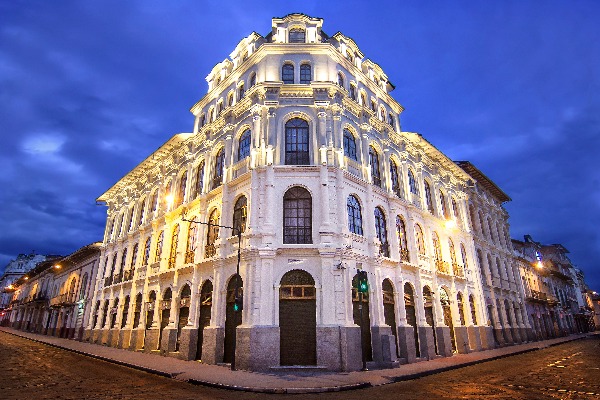Talented Andean women are the key to success for expat clothing exporting venture
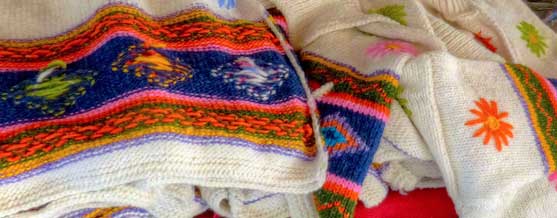
By Sylvan Hardy
In 2014, when expats Rick Lewis and Tony Spada toured the indigenous markets of Northern Ecuador, especially the most famous one in Otavalo, they were blown away by the sophisticated designs and high quality of the handmade wool and alpaca products.
“The sweaters, shawls and ponchos we found were beautifully crafted, and were really works of art,” says Lewis. “Our first thought was, people should know about this stuff. People should be able to buy it.”
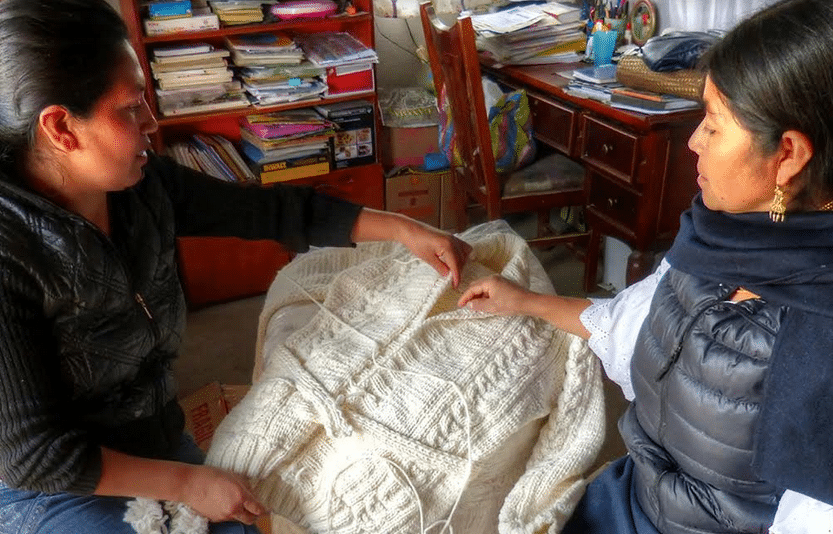
Quena weavers examine a sweater.
Three years later, Lewis and Spada are sharing their discovery with the world through their website, Quena.us, named after the famous Andean six-fingered flute that produces the haunting melodies of the Andes Mountains. The two have also created Rio Ambi Exports Inc., to export native-made products back to the North America.
As Lewis and Spada developed their network of knitters and weavers, they discovered the true power behind the products they were purchasing. “It was the women,” Lewis said. “The vast majority of those who still make knit and woven clothing on hand looms in Ecuador are women. We also discovered that most of these women who work in the informal economy and are poorly paid. We saw an opportunity. We could buy great products at reasonable prices and, at the same time, empower the women who produced them.”
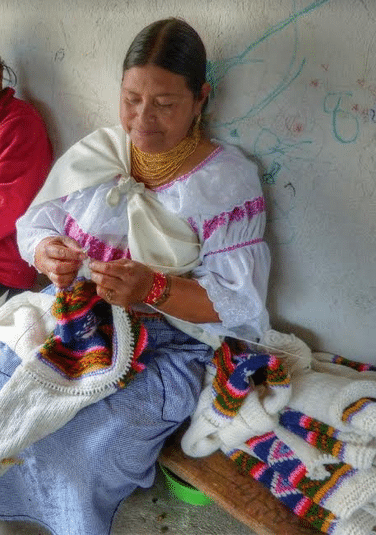
A Quena supplier knits a hat for a North American woman.
Quena sells women’s sweaters, jackets, hats, ponchos, shawls, and scarves, all made by its network of talented craftswomen. All of its products are handmade, Lewis says, either knitted or crafted by hand, or on hand-operated looms.
In addition to its selection of wool, merino wool and alpaca products, Quena offers leather purses made in the Imbabura leather town of Cotacachi.
To streamline deliveries to customers, Rio Ambi Exports sends finished Quena products to its distribution center in Texas, which, in terms, ships them to customers in U.S. and Canada. “Shipping and distribution are a challenge from Ecuador, and since most of our customers are in the U.S., it made sense to ship from there,” Lewis says.
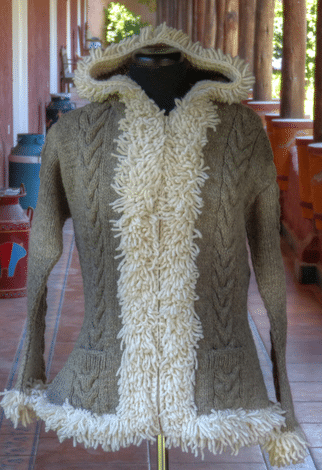
A Quena jacket
In addition to helping the women who create its products, Lewis says Quena is dedicated to healthy environmental practices. “We encourage the use of renewable resources,” he says. “Besides the natural wool, alpaca and leather of our products, we make our buttons from Ecuadorian tagua nuts or coconut shell,” says.
He adds: “We feel very good about what we are doing. We are delivering unique, high quality products made by the women of Ecuador to the women of North America. We’re also playing a role in improving the lives of local families.”
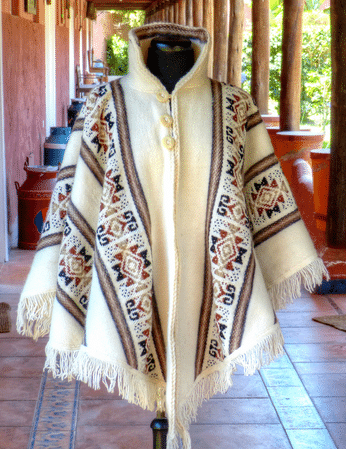
A Quena poncho
Lewis and Spada were better equipped than most expats to start an Ecuadorian business, since both speak Spanish. Lewis worked with the U.S. Peace Corps in Nicaragua in the early 1970s and Spada lived for several years in Mexico.
Lewis has a background working for non-profit organizations, dating back to his years with National Public Radio after his Peace Corps assignment. Before moving to Ecuador five years ago, he was the CEO of Friends of WLRN, the public radio station in Miami.
Spada, who owned several Florida companies, was a long-time real estate developer in Orlando before moving to Ecuador.
Lewis and Spada, currently busy filling Christmas orders, say they feel a sense of fulfillment in their work at Quena.
“We’re very committed to our project,” Lewis says. “We are working with exceptional women who produce exceptional work and we know that the products we sell have special significance. We are a part of the community in Imbabura and think we are providing valuable services in return.”
For more about Quena and Quena products, go to Quena.us. Lewis and Spada are offering a 20% discount to CuencaHighLife readers on all products ordered before December 31. Coupon code: ExpatDisc











